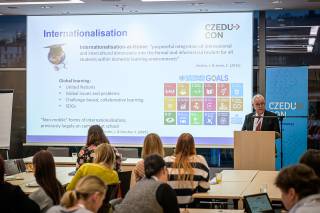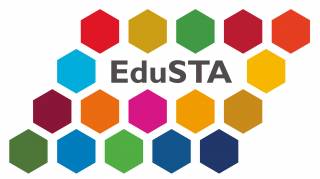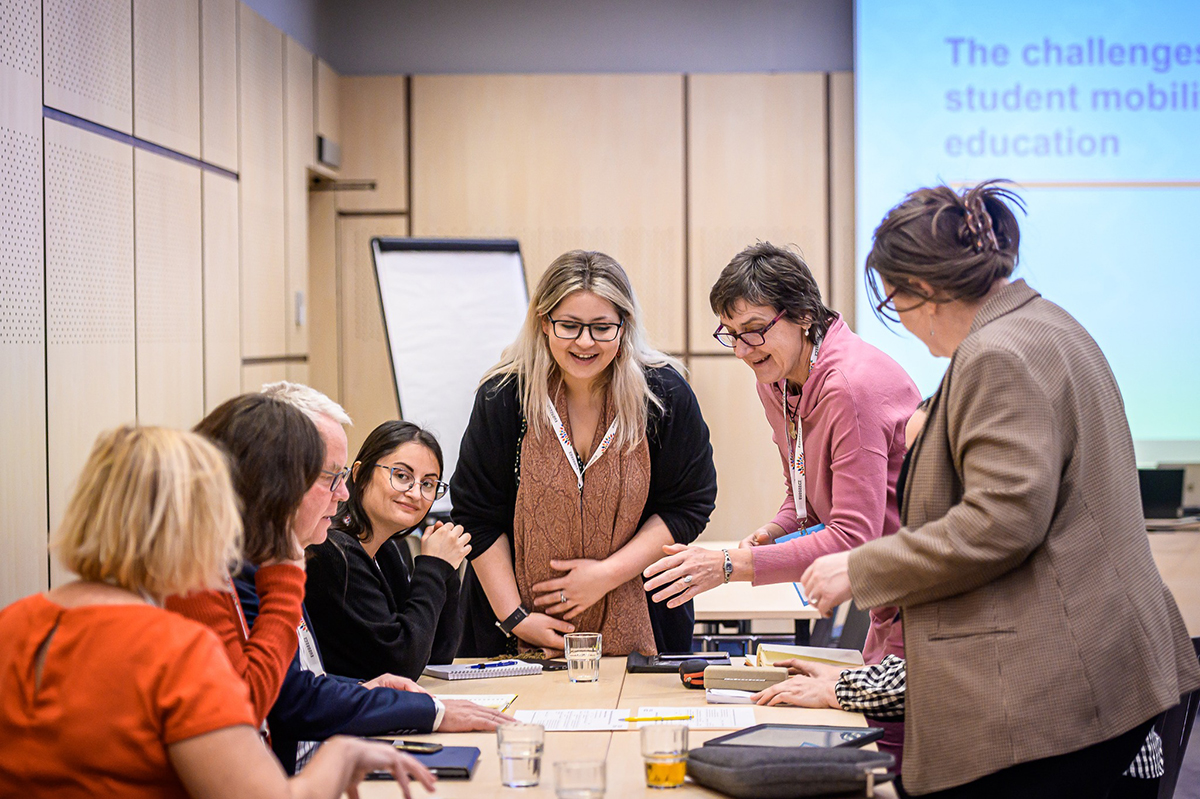CZEDUCON conference was organised by the Czech National Agency for International Education and Research (DZS) together with the Ministry of Education as part of the Czech Republic’s activities in the field of education under the Czech Presidency of the Council of the EU.
Top representatives of European universities met with representatives of the European Commission as well as experts, government officials and education specialists to jointly address the issues of developing and implementing strategies in the field of internationalisation of higher education in Europe.
During two-day conference held on 21st and 22nd November 2022, they had a chance to discuss topics such as the European University Alliance, digitalization of education and virtual learning exchanges, joint educational programmes, role of higher education institutions in lifelong learning and synergies between education and research.


“The conference brought experts in the field of international higher education and decision-makers from a number of European countries to Prague. These people are shaping the European education space and deciding its future. Their meeting therefore has an important place among the activities of the Council Presidency, and I am glad that the CZEDUCON conference, which DZS organises every year, has become a platform for it,” said Václav Velčovský, Deputy Minister of Education, Youth and Sports in the opening ceremony.

Themis Christophidou, Director-General for Education and Culture of the European Commission, stressed the importance of international cooperation in addressing current challenges in her speech:
“CZEDUCON represents an exceptional opportunity to meet and discuss current challenges and I believe we are well equipped to face them. Using European tools for university collaboration, guided by common values and shared visions, we can lead European universities towards a sustainable and digital future. The development of the European University Alliance, the European Student Card Initiative and the Joint European Degree Label will help to achieve the same goal.”
The Czech EduSTA team participated in a parallel session on micro-credentials. An informal presentation about the EduSTA project brought it to the attention of the other participants. The EduSTA team exchanged contacts with representatives from the University College Cork (Ireland) and the German Academic Exchange Service (DAAD) for sharing future findings and outputs.
The session was opened by a speech from an expert from the University College Cork, Ms. Mags Arnold, the lead of the Multi Campus Micro Credentials project (MicroCreds). She introduced the activities of the Irish Universities Association, presented outputs from the European MicroCreds project, and explained how lifelong learning is organised at her university and how micro-credentials are used there.
Ms. Arnold emphasized both the advantages and challenges of micro-credentials. She can see strengths in the promotion of lifelong learning, in the flexibility to adapt to the changing needs of the labour market, in the assistance for upskilling and reskilling, and in the potential to provide access to education to a more diverse group of learners. In her opinion, the challenges are, for example, in the proliferation of unregulated micro-credentials, lack of transparency regarding who acts as the guardian of quality, recognition by institutions, and system issues preventing flexibility.

The participants of the session shared these views with Ms. Arnold and also added some remarks:
- A learning experience leading to micro-credentials is designed to provide the learner with specific knowledge, skills, and competences that correspond to societal, personal, cultural, or labour-market needs.
- Micro-credentials will work well if they are: short, flexible, relevant, learner centred, collaborative, formally and equally assessed, quality assured, and stackable.
- Micro-credentials can reflect pluralistic purposes and approaches, but only if these perspectives are taken seriously. It does appear that these wider social perspectives are not always apparent in policy or implementation perspectives.
- Micro-credentials address the skills gap and enable a rapid learning response to new societal and labour-market demands.
Text: Barbora Jordánová, CZU Prague
Photos: Czech National Agency for International Education and Research


